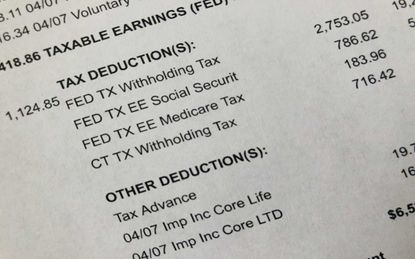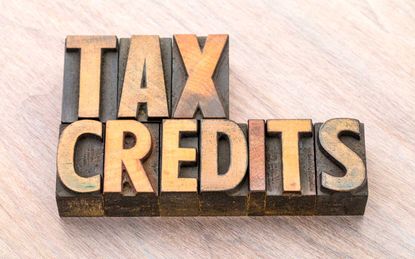
No matter what business you're in, there's probably at least one CARES Act tax breaks that can improve your bottom line and help you stay afloat.
When you purchase through links on our site, we may earn an affiliate commission. Here’s how it works.

While stimulus checks, small business loans and expanded unemployment benefits have gotten the lion's share of media coverage, there are also a number of important business tax breaks in the Coronavirus Aid, Relief, and Economic Security (CARES) Act that haven't received a lot of attention. Most of the new tax breaks are only temporary. Several of them tweak or reverse changes made by the 2017 tax reform law. All are designed to get coronavirus-ravaged businesses and workers back on their feet as quickly as possible. No matter what business you're in, at least one of these seven tax breaks is likely to improve your bottom line and help you stay afloat.
(For information on new business tax credits for providing paid sick and family leave benefits, which were enacted as part of the Families First Coronavirus Response Act, see Tax Credits Included in Coronavirus Paid Leave Law.)

Normally, a corporation can't deduct charitable contributions that exceed 10% of its taxable income for the year. Any amount over the 10% limit can be carried over for up to five years. Under the CARES Act, the taxable income limit on 2020 charitable gifts of cash rises to 25%.
The CARES Act also increases the limitation on deductions for 2020 contributions of food inventory from 15% to 25%.

Employers can defer payment of their 6.2% share of Social Security tax on wages paid from March 27 through December 31, 2020. Half of the deferred amount is due on December 31, 2021, and the other half on December 31, 2022. Self-employed people can defer 50% of the self-employment tax they owe.
This relief does not apply to businesses that receive a Small Business Administration (SBA) paycheck protection loan under the CARES Act and have that debt forgiven for retaining their employees.

There's a new payroll tax credit for employers hurt by the coronavirus…but the business must retain and continue to pay workers to claim this tax break. The credit of up to $5,000 per paid employee offsets the employer's 6.2% share of Social Security taxes, with the excess refundable. Eligible employers are those who have to close up shop or reduce hours because of a governmental order, or whose gross receipts in a quarter have declined by more than 50% compared to the same quarter in 2019.
The credit only applies to qualified wages paid from March 13 through December 31, 2020. Qualified wages depend on the number of employees the business had in 2019. If the firm averaged more than 100 full-time employees, qualifying wages are wages paid when employee services are not provided. For smaller firms, all wages are eligible for the credit.
Employers with cash flow problems can get this credit quickly by reducing employment tax deposits otherwise owed to the IRS by the amount of the credit. Firms can also file new IRS Form 7200 to seek advance payment for credits in excess of payroll tax deposits.
There are lots of rules and complexities involved with this payroll tax credit. One important restriction is that employers who get an SBA paycheck protection loan under the CARES Act are not eligible for the credit. So be sure to check with your tax advisor for assistance with this credit.